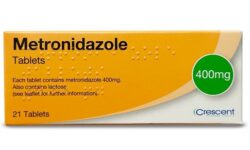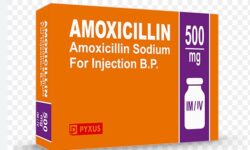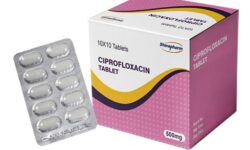Can I Have a Cup of Coffee While Taking Cipro? ⏬
Are you a coffee lover who also happens to be on Can I Have a Cup of Coffee While Taking Cipro? If so, you may be wondering whether it’s safe to indulge in your favorite caffeinated beverage while taking this medication. Cipro, also known as ciprofloxacin, is a commonly prescribed antibiotic used to treat a variety of bacterial infections. However, it’s important to be aware of how it may interact with other substances, including caffeine. In this blog post, we’ll delve into the potential effects of combining Cipro with coffee, how Cipro is absorbed in the body, and expert recommendations for caffeine intake while on the medication. We’ll also discuss the risks and precautions associated with mixing Cipro with coffee to help you make informed decisions about your health. So, grab a cup of coffee (or maybe hold off for now) and let’s explore this topic together.Discover the impact of combining Cipro with caffeine, including absorption, interactions, risks, and expert recommendations for safe usage. Avoid potential interactions and follow precautions.
Understanding Cipro And Its Interaction
Can I Have a Cup of Coffee While Taking Cipro is a common question among individuals who are prescribed with this antibiotic. Ciprofloxacin, commonly known as Cipro, is a powerful antibiotic used to treat a variety of bacterial infections. It belongs to the fluoroquinolone class of antibiotics and works by stopping the growth of bacteria. It is important to understand how Cipro interacts with other substances, including caffeine found in coffee.
When taking Cipro, it is essential to be aware of its potential interactions with other substances, as this can affect its effectiveness and overall impact on the body. While it is generally safe to have a cup of coffee while taking Cipro, it is important to note that caffeine can affect the absorption of the medication in the body.
Cipro’s absorption in the body can be influenced by the presence of caffeine, which is a key component found in coffee. Caffeine has the potential to interfere with the absorption of Cipro, as it can affect the way the body processes and metabolizes the antibiotic. This can result in reduced levels of Cipro in the bloodstream, potentially impacting its efficacy in treating the infection.
It is advisable to consult with a healthcare professional or pharmacist for expert recommendations for caffeine intake while taking Cipro. They can provide personalized advice based on individual health factors and the specific dosage of Cipro being taken. Additionally, they can offer insights on potential risks and precautions of combining Cipro with coffee, ensuring the safe and effective use of the antibiotic.
Effects Of Cipro And Caffeine Combination
Can I Have a Cup of Coffee While Taking Cipro? This question is one that many individuals who are prescribed Cipro may ask. Cipro is an antibiotic that is used to treat a variety of bacterial infections. However, it’s important to consider the potential interactions between Cipro and caffeine before enjoying your regular cup of coffee.
When Cipro and caffeine are combined, there may be a risk of increased caffeine levels in the body. This is because Cipro can inhibit the breakdown of caffeine in the liver, leading to higher levels of caffeine in the bloodstream. As a result, individuals may experience symptoms of caffeine overdose such as increased heart rate, restlessness, and anxiety.
Additionally, Cipro can affect the way the body absorbs caffeine. This means that the effects of caffeine may be more pronounced when taken alongside Cipro. It’s important to be mindful of this interaction and to consider reducing your caffeine intake while taking Cipro to avoid potential side effects.
In conclusion, the combination of Cipro and caffeine can have significant effects on the body. It’s important to be aware of these potential interactions and to consult with a healthcare professional before consuming caffeine while taking Cipro.
Cipro’s Absorption In The Body
When taking Cipro, it’s important to understand how the medication is absorbed in the body. Ciprofloxacin, the active ingredient in Cipro, is quickly and well-absorbed from the gastrointestinal tract after oral administration.
Once ingested, Cipro is rapidly distributed throughout the body, reaching high concentrations in various tissues. This rapid absorption and distribution make it an effective antibiotic for treating a wide range of bacterial infections.
Cipro can be taken with or without food, but it’s important to note that taking it with certain food and drinks may affect its absorption. For example, consuming coffee or other caffeinated beverages may decrease the absorption of Cipro, leading to lower levels of the medication in the bloodstream.
Understanding how Cipro is absorbed in the body can help patients make informed decisions about when and how to take the medication, as well as what to avoid to ensure optimal absorption and effectiveness.
Potential Interactions With Coffee
Can I Have a Cup of Coffee While Taking Cipro? This is a common question for those who are prescribed Ciprofloxacin, commonly known as Cipro. Cipro is a broad-spectrum antibiotic that is often used to treat bacterial infections. It is important to be aware of the potential interactions between Cipro and coffee, as well as other caffeinated beverages.
When it comes to Understanding Cipro And Its Interaction with coffee, it is important to note that caffeine can interfere with the absorption of Cipro in the body. This means that if you consume coffee or other caffeinated drinks while taking Cipro, it may reduce the effectiveness of the medication. It is recommended to avoid consuming coffee at least 2 hours before or 6 hours after taking Cipro to ensure proper absorption.
It is essential to be mindful of the Effects Of Cipro And Caffeine Combination on the body. Not only can caffeine interfere with the absorption of Cipro, but it can also increase the risk of potential side effects such as nervousness, jitteriness, and an increased heart rate. In some cases, it may even lead to more severe side effects.
Based on Expert Recommendations For Caffeine Intake, it is advisable to limit the consumption of caffeine while taking Cipro. This includes not only coffee but also tea, soda, and other caffeinated beverages. It is best to opt for decaffeinated options if you are craving a warm beverage while undergoing treatment with Cipro.
Expert Recommendations For Caffeine Intake
When it comes to taking Cipro, a commonly prescribed antibiotic, many people wonder if they can still indulge in their daily cup of coffee. While there is no clear-cut answer, experts generally recommend being cautious when it comes to caffeine intake while on Cipro. This is because caffeine can potentially interact with the antibiotic, leading to increased side effects or reduced effectiveness of the medication.
It’s important to note that Cipro belongs to a class of antibiotics known as fluoroquinolones, which have been associated with an increased risk of certain side effects such as tendon rupture and nerve damage. In some cases, caffeine consumption may exacerbate these side effects, so it’s essential to consult a healthcare professional before combining Cipro with coffee or other caffeinated beverages.
Healthcare providers may provide individualized recommendations based on a person’s medical history, current health status, and the specific formulation of Cipro being prescribed. In some instances, they may advise limiting caffeine intake or avoiding it altogether while undergoing treatment with Cipro. It’s crucial to follow these recommendations to minimize the risk of potential interactions and adverse effects.
In conclusion, while it may be tempting to reach for a cup of coffee while on Cipro, it’s best to seek expert recommendations regarding caffeine intake. By doing so, individuals can ensure that they are taking necessary precautions to support the effectiveness of their antibiotic treatment and safeguard their overall health.
Risks And Precautions Of Combining Cipro With Coffee
When taking antibiotics like Cipro, it’s essential to be aware of potential interactions with other substances, such as caffeine. While it may be tempting to reach for a cup of coffee to start your day, it’s important to understand the risks and precautions of combining Cipro with coffee.
One of the primary concerns when mixing Cipro with coffee is the potential for increased side effects. Caffeine is known to be a stimulant, and when combined with certain medications, it can amplify their effects. This means that the side effects of Cipro, such as dizziness, drowsiness, and headaches, may become more pronounced when consumed with coffee.
Additionally, caffeine can interfere with the absorption of Cipro in the body. This can potentially reduce the effectiveness of the antibiotic, leading to prolonged illness or a higher risk of antibiotic resistance. It’s crucial to follow the recommendations of healthcare professionals and avoid consuming coffee or any caffeinated beverages while taking Cipro to ensure the antibiotic works as intended.
In some cases, individuals may still be able to enjoy a cup of coffee while taking Cipro, but it’s important to consult a healthcare provider first. They can provide personalized recommendations based on individual health factors that can help determine whether it’s safe to consume caffeine while on Cipro. Ultimately, the risks and precautions of combining Cipro with coffee should not be taken lightly, and it’s essential to prioritize the effectiveness of the antibiotic over the temporary enjoyment of a caffeinated beverage.
Frequently Asked Questions
What is Cipro and how does it work in the body?
Cipro is a type of antibiotic that belongs to the fluoroquinolone class. It works by killing bacteria or preventing their growth.
Can I drink coffee while taking Cipro?
It is generally recommended to avoid consuming caffeine while taking Cipro as it can increase the risk of certain side effects.
Are there potential interactions between Cipro and caffeine?
Yes, consuming caffeine while on Cipro may lead to an increased risk of side effects such as nervousness, restlessness, and rapid heart rate.
How does Cipro get absorbed in the body?
Ciprofloxacin, the active ingredient in Cipro, is well absorbed after oral administration and rapidly distributed throughout the body.
What are some expert recommendations for caffeine intake while on Cipro?
Experts recommend avoiding or minimizing caffeine intake while taking Cipro to reduce the risk of potential interactions and side effects.
What are the risks and precautions of combining Cipro with coffee?
Combining Cipro with coffee can increase the risk of caffeine-related side effects and may reduce the effectiveness of the medication.
Can I have other caffeinated beverages while taking Cipro?
It is generally advised to limit or avoid all sources of caffeine, including other caffeinated beverages, while taking Cipro.



